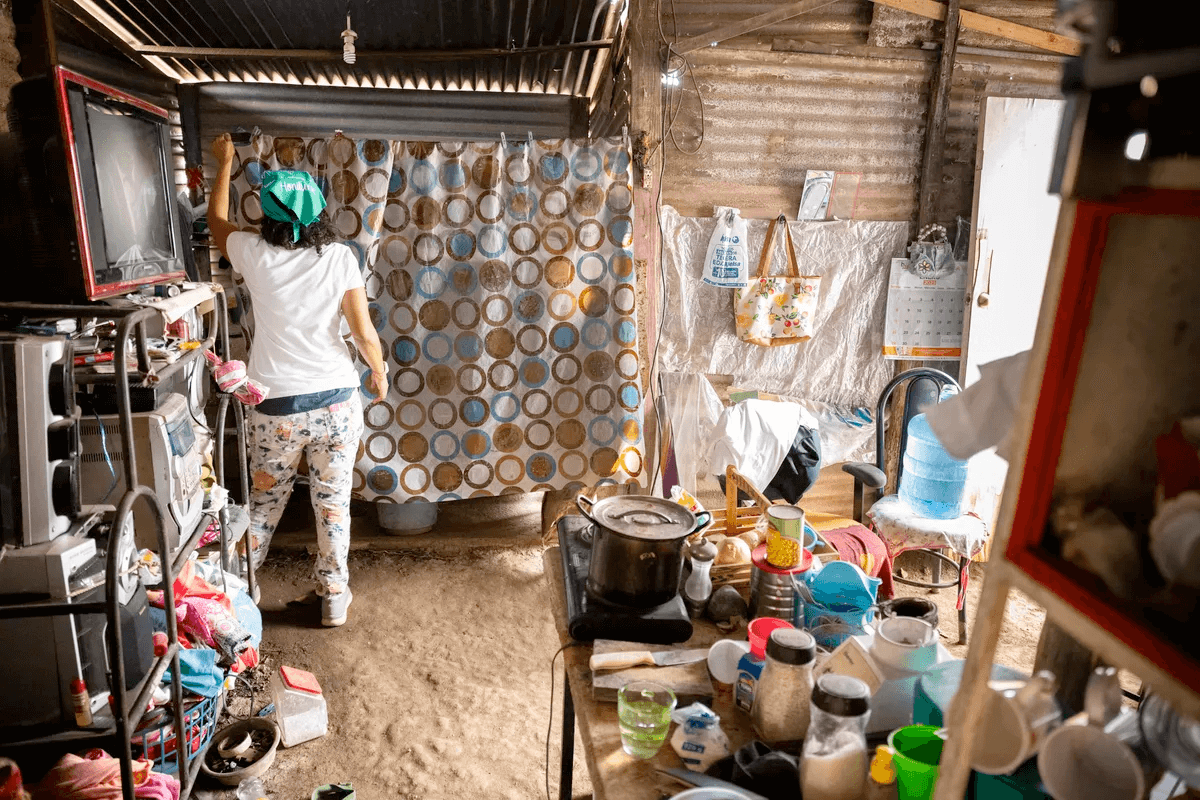
Sitting in the sweltering heat outside her rented metal hut in a dusty neighbourhood in El Progreso, a woman tells the story of how she wound up handcuffed in the hospital in 2010. She was in her late 20s and was unwell with abdominal pain. The hospital sent her to do a urine test but what she found was blood. Later, she realised she had had a miscarriage, but at that moment she did not even know she was pregnant. Rather than offering compassion, she said the hospital accused her of having an abortion, and called the police. She ended up handcuffed for a week and ‘treated like an animal’ she said.
All abortions are illegal in Honduras, and imprisonment can be for up to six years. Anyone found to have helped a woman is also liable to penalty. The treatment is consistent with how women are treated generally. Violence against women is common and it is estimated that a woman is killed every day. Strong advocates are at the forefront of working for change, however. And in 2022, Xiomara Castro became the country’s first female president. On 8 March, International Women’s Day, she announced an end to the ban of the morning-after pill. Rights groups have called on her to legalise abortion in cases of rape, risk to the pregnant womans ife and risk of severe fetal impairment, and to further decriminalise abortion in other circumstances too.
An activist group in Tegucigalpa told the story of a 17-year-old who was falsely accused of having an abortion and not declared innocent until seven years later, meaning it was impossible for her to get a job in the meantime. A Human Rights Watch report in 2019 cited an NGO estimate that there are 50,000-80,000 abortion annually in the country. The number of deaths from dangerous procedures is not known. In the cities there is a black market for abortion pills but in the rural areas not and the use of pesticide for abortion is known. Deaths follow. Some women purposely commit suicide this way because they see no way out.
Somos Muchas (We Are Many) are working with other groups such as Optio and Lawyers Without Borders Canada to get women released from prison who were accused of abortions, many of whom in fact had miscarriages. A constitutional challenge by the Equipo Juridico por los Derechos Humanos, some 20 women’s and human rights groups, did not succeed after two attempts to overturn the law in the Constitutional Chamber. So other avenues are being explored. La lutte continua.
SOURCE: Globe2Go (The Globe and Mail BC Edition) Canada, by Janice Dickson, + PHOTO, 1 August 2023 (Excerpts from a much longer article)



